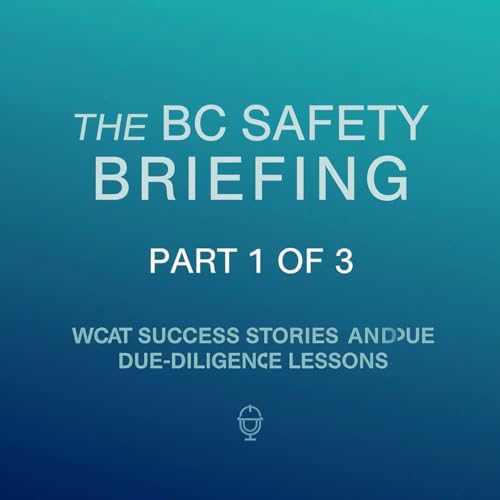
Part 1 of 3: WCAT Success Stories and Due Diligence Lessons
Échec de l'ajout au panier.
Échec de l'ajout à la liste d'envies.
Échec de la suppression de la liste d’envies.
Échec du suivi du balado
Ne plus suivre le balado a échoué
-
Narrateur(s):
-
Auteur(s):
À propos de cet audio
Welcome to Part One of our three-part series examining a BC sawmill company's remarkable track record at the Workers' Compensation Appeal Tribunal. In this episode, we analyze two key WCAT decisions that provide valuable insights into how due diligence is assessed at the appeal level. **Cases Covered:** - WCAT Decision A1605590 (2018): $15,000 combustible dust penalty - How context and systematic safety programs influenced the outcome - WCAT Decision A1800485 (2019): $124,490 table saw guarding penalty - The role of comprehensive training documentation and worker misconduct **Key Learning Points:** - How WCAT evaluates due diligence in administrative penalty appeals - The importance of systematic documentation of training and supervision - Why context matters when violations occur during unusual circumstances - Practical takeaways for building defensible safety management systems This episode examines the legal reasoning behind these decisions and what they teach BC safety professionals about effective due diligence programs. Remember, this AI-generated content is for educational purposes only—not legal or professional advice. **Next Episode:** Part 2 will cover the employer's successful defenses against lockout and confined space penalties totaling over $200,000. **Resources:** - WCAT Decision A1605590: Combustible dust management - WCAT Decision A1800485: Guarding and supervision requirements - WorkSafeBC Prevention Manual policies on due diligence


